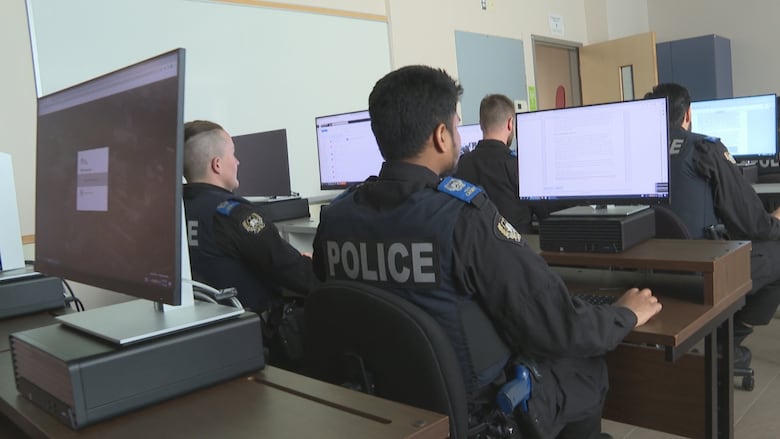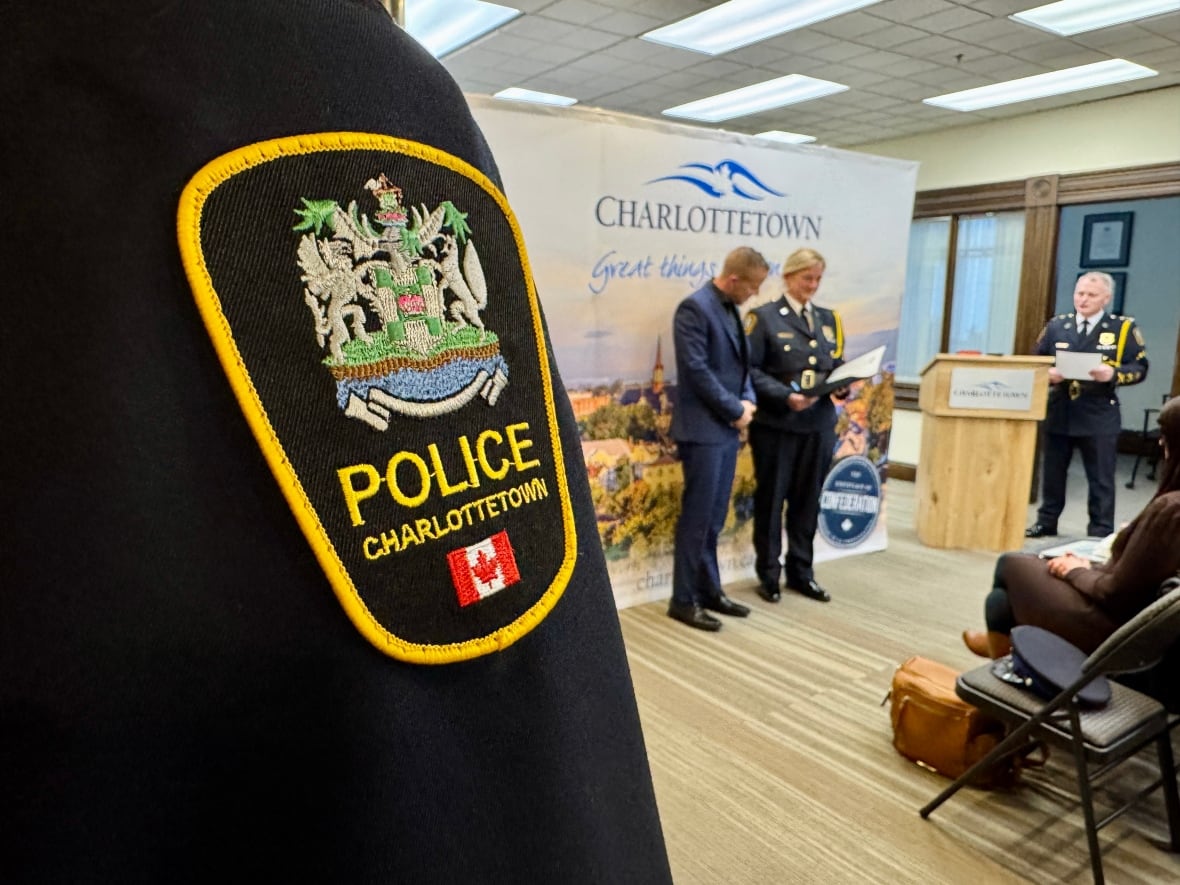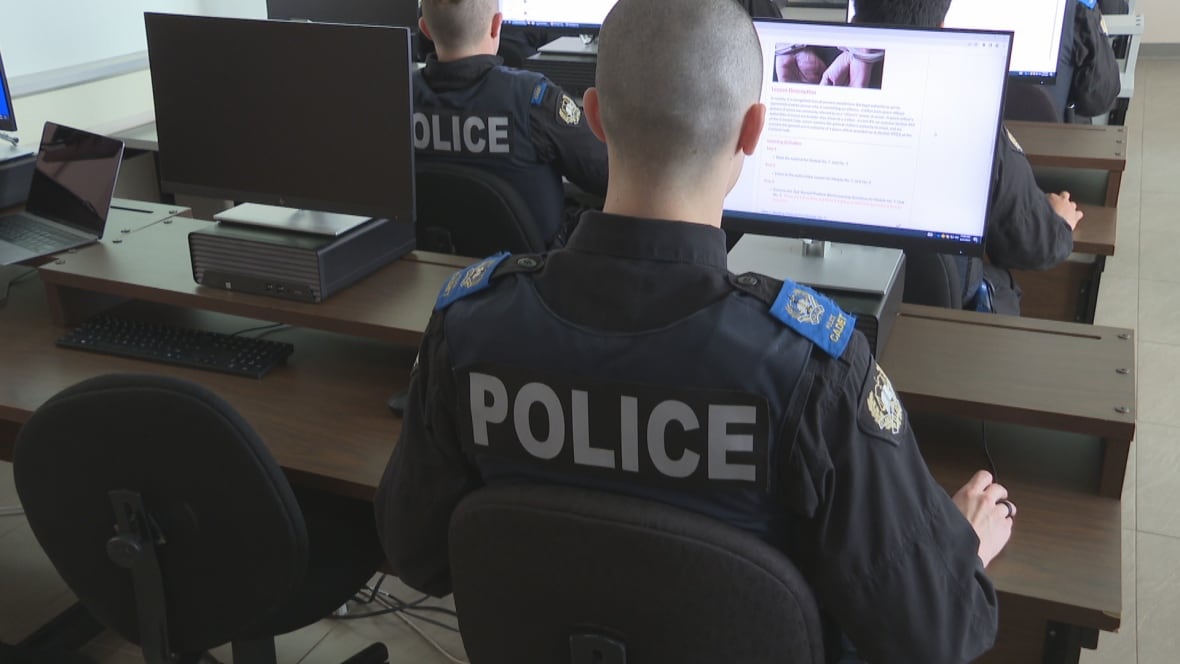Charlottetown police offer free tuition to some cadets amid nationwide policing shortage
Cadets must finish the program, commit to serving with the police service for 5 years

Four police cadets will have their tuition covered by a new sponsorship program being offered through Charlottetown Police Services, the city's interim police chief says.
The sponsorship will cover the cost of tuition at the Atlantic Police Academy, amounting to about $32,900 per year, said Jennifer McCarron.
"Our numbers are low and we can fit it in our budget to actually send them to the academy this year," McCarron said.
The police service will pays the tuition cost upfront, and the province will reimburse the cost when the cadets graduate from the 32-week program, she said.

Those cadets won't have to pay back any of the money as long as they graduate from the program and commit to serving with the Charlottetown police force for five years, McCarron said.
The police service will begin screening its applications in early October, with the cadets set to begin at the academy in January 2026.
An information session with more details is scheduled for August 6 at the Murchison Centre on St. Pius X Avenue off St. Peters Road.
An advantage for local police
The City of Summerside already has a sponsorship program in place to send cadets to the Atlantic Police Academy.
The first iteration of the program was city-sponsored, providing cadets with partial tuition coverage and a paid summer job placement, said Summerside police Chief Jason Blacquiere.

Now, with the province's support, the program covers the entire cost of tuition for selected cadets, he said.
"We've asked people through our interview process why they didn't go through... academy training before, and cost was almost always cited as a big factor," he said.
"With this sponsorship partnership with the province and the city, it's been a real boon for us."
While the program is still relatively new, Blacquiere said it's showing promising results so far.
"Any time you're recruiting and training your own from your own area and you have people committed to your community and your police service, it's a good thing," he said.

McCarron said this kind of sponsorship program is the new normal for police academy admissions in Atlantic Canada.
According to the Atlantic Police Academy's website, the recommended pathway to admissions is by applying through a police agency in one of the Atlantic provinces.
Charlottetown police use the same standards and application process as the academy, McCarron said, noting that the main difference for the local police service is that it takes a more active role in recruiting and doing background checks.
She said getting to see and meet the applicants before they start to go through the program is an advantage for the city's police force.
"It used to be [that] we wouldn't meet them until they were here for on-the-job training. This way, we get to meet them, get to know them a bit through this whole process, and we kind of know what we're getting when they graduate," she said.
Nationwide shortages
Charlottetown's police service has faced challenges keeping its numbers up, McCarron said, noting that it's part of a larger trend.
"Every police department across Canada has a shortage. Policing is not as attractive as it used to be, so now we have to attract," she said.

While retirement is typically the main reason officers leave the Charlottetown police, McCarron said the local force also lost eight people to the RCMP in the past year.
She said Charlottetown tries to rotate its current officers between divisions within the force to give them a chance to try different things throughout their careers.
While the new sponsorship program is mainly focused on recruitment, there are also retention benefits, she said.
"It also helps older officers as well, when younger officers start, because they have different points of view," McCarron said.
"We have officers that have been here for 25, 30 years.… When you put them with a cadet, they learn just as much as a cadet does."


